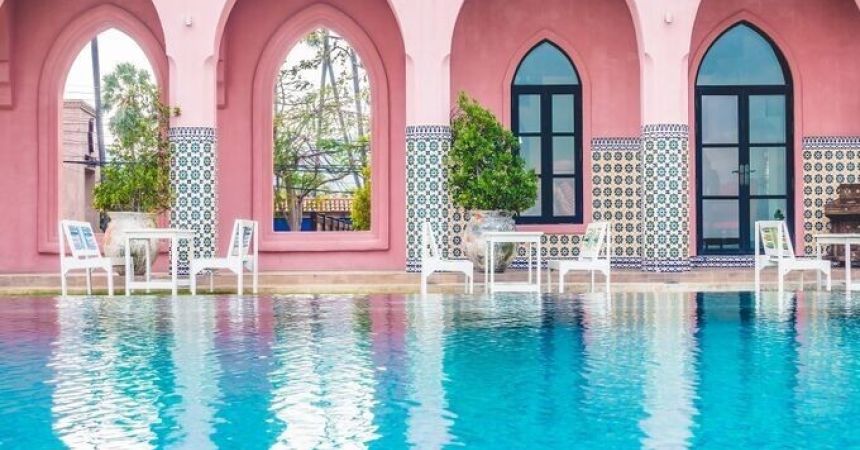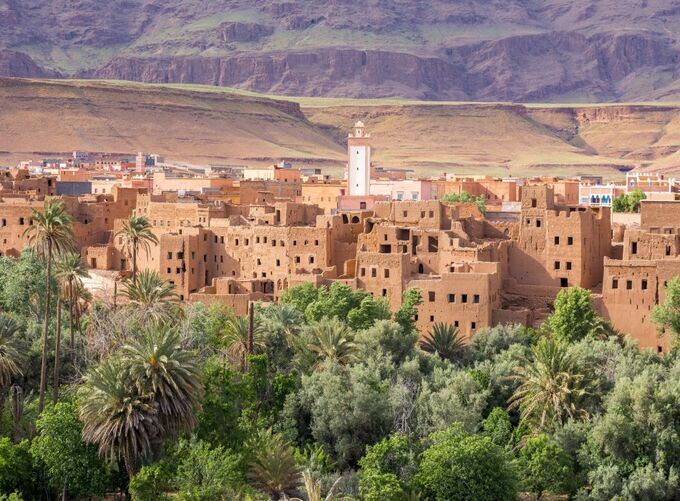
Morocco Weather in February Best Time Travel
The weather in Morocco in February makes it one of the most underrated months for travel. Sitting between winter and spring, February offers mild daytime temperatures, fewer crowds, and excellent value—ideal for sightseeing, cultural tours, and relaxed holidays. For travelers seeking comfort without peak-season prices, Morocco in February is a very attractive choice.
This guide explains Morocco’s February weather by region and shows why it works so well for travel, vacation packages, honeymoons, Morocco itineraries, group tours, private tours, and smart travel deals.
Is February a Good Time to Visit Morocco?
Yes—February is a very good time to visit Morocco, especially for travelers who prefer cooler temperatures and quieter attractions. While it’s still winter, February is noticeably milder than January and often feels like early spring during the day.
February is ideal for:
- City sightseeing and cultural tours
- Multi-city Morocco itineraries
- Budget-friendly holidays
- Honeymoon travel with fewer crowds
- Private and group tours
If you enjoy walking tours, historic cities, and comfortable daytime weather, February is an excellent choice.
Average Temperatures in Morocco in February
Morocco’s February weather varies by region, but overall conditions are mild and pleasant.
- Daytime: Mild to warm sunshine
- Evenings: Cool, sometimes chilly inland
- Rainfall: Light and occasional, mostly in the north
Compared to January, February brings slightly warmer days and longer daylight hours—perfect for sightseeing-heavy itineraries.
Marrakech & Inland Cities in February
In Marrakech and Fez, February weather is excellent for exploring medinas, palaces, and souks. Days are comfortable for walking tours, while evenings can be cool enough to enjoy riads with fireplaces and courtyards.
February is particularly good for:
- Guided city sightseeing
- Food and cultural experiences
- Shopping in souks without heat fatigue
Hotel availability is usually better than in spring, making it easier to secure good travel deals.
Sahara Desert Weather in February
The Sahara Desert is at its best in February for daytime activities. Camel trekking, dune walks, and scenic drives are very comfortable under clear skies.
However, desert nights remain cold:
- Pack warm layers for evenings
- Choose desert camps with proper heating
- Enjoy excellent stargazing and sunrise views
For travelers prepared for cool nights, February is one of the best months for Sahara tours.
Coastal Morocco Weather in February
Coastal destinations like Essaouira enjoy mild but breezy conditions in February. While swimming isn’t ideal, the weather is perfect for coastal sightseeing, photography, and relaxed walks along the ramparts.
February is well suited for:
- Calm coastal holidays
- Seafood dining and café culture
- Combining coast with inland cities
Crowds are minimal, giving the coast a peaceful atmosphere.
Northern Morocco & Mountain Regions in February
Northern towns such as Chefchaouen experience cool temperatures and occasional rain in February. The blue streets are quieter, making this a great time for photography and slow exploration.
In the Atlas Mountains, higher elevations may still have snow. While hiking can be limited, the scenery is dramatic, and mountain views add beauty to longer itineraries.
What to Pack for Morocco in February
Packing for Morocco in February requires layers:
- Light jacket or coat
- Warm layers for evenings
- Comfortable walking shoes
- Scarf and light gloves for cooler nights
- Sunglasses and daytime clothing for mild sun
Desert travelers should bring thermal layers for overnight stays.
Is February an Affordable Time to Travel in Morocco?
Yes—February is part of Morocco’s low to shoulder season, making it a great month for value-focused travelers. Prices are generally lower than spring and autumn, and availability is good across hotels, riads, and tours.
Travelers can benefit from:
- Competitive vacation packages
- Reduced hotel rates
- Better availability for private tours in Morocco
- Attractive group tour pricing
This makes February ideal for longer itineraries and budget-conscious holidays.
Best Morocco Itineraries for February Travel
February is perfect for:
- 7–10 day cultural itineraries
- Marrakech + Fez + desert routes
- Honeymoon travel with upgraded riads
- Private tours with flexible pacing
Cooler weather allows full sightseeing days without exhaustion.
Advantages of Visiting Morocco in February
- Comfortable daytime temperatures
- Fewer tourists at major attractions
- Better prices and travel deals
- Excellent desert touring conditions
- Relaxed atmosphere in cities and towns
For travelers prioritizing culture, value, and comfort, February is one of the best-kept secrets in Morocco travel.
Things to Keep in Mind in February
- Evenings can be chilly, especially inland and in the desert
- Occasional rain in northern regions
- Swimming is limited
- Mountain travel may require flexibility
With proper planning, these are minor considerations.
Final Thoughts: Is February a Good Month to Visit Morocco?
Yes—February is an excellent month to visit Morocco. It offers mild weather, fewer crowds, and strong travel deals, making it ideal for sightseeing, tours, and relaxed holidays. With layered packing and a well-planned itinerary, Morocco in February delivers comfort, authenticity, and outstanding value.

Frequently Asked Questions (FAQ)
Is Morocco cold in February?
Mornings and evenings are cool, but daytime temperatures are mild and comfortable for sightseeing and tours.
Can I visit the Sahara Desert in February?
Yes. February is excellent for desert tours, though nights are cold, so warm clothing is essential.
Is February good for honeymoon travel in Morocco?
Yes. Fewer crowds, romantic riads, and peaceful desert camps make February ideal for relaxed honeymoons.
What should I wear in Morocco in February?
Wear layers, including a light jacket for evenings and comfortable clothing for mild daytime temperatures.
Is February a cheap time to visit Morocco?
Yes. February offers good value with lower prices, better availability, and attractive travel deals.



